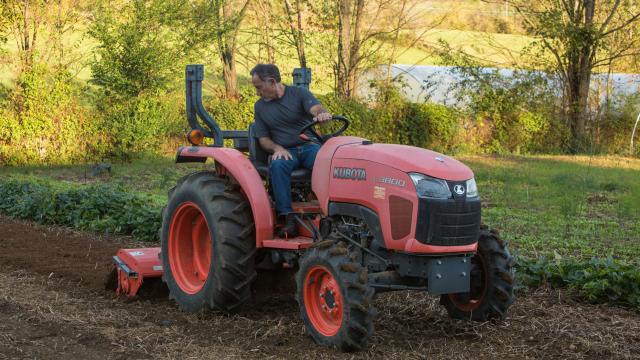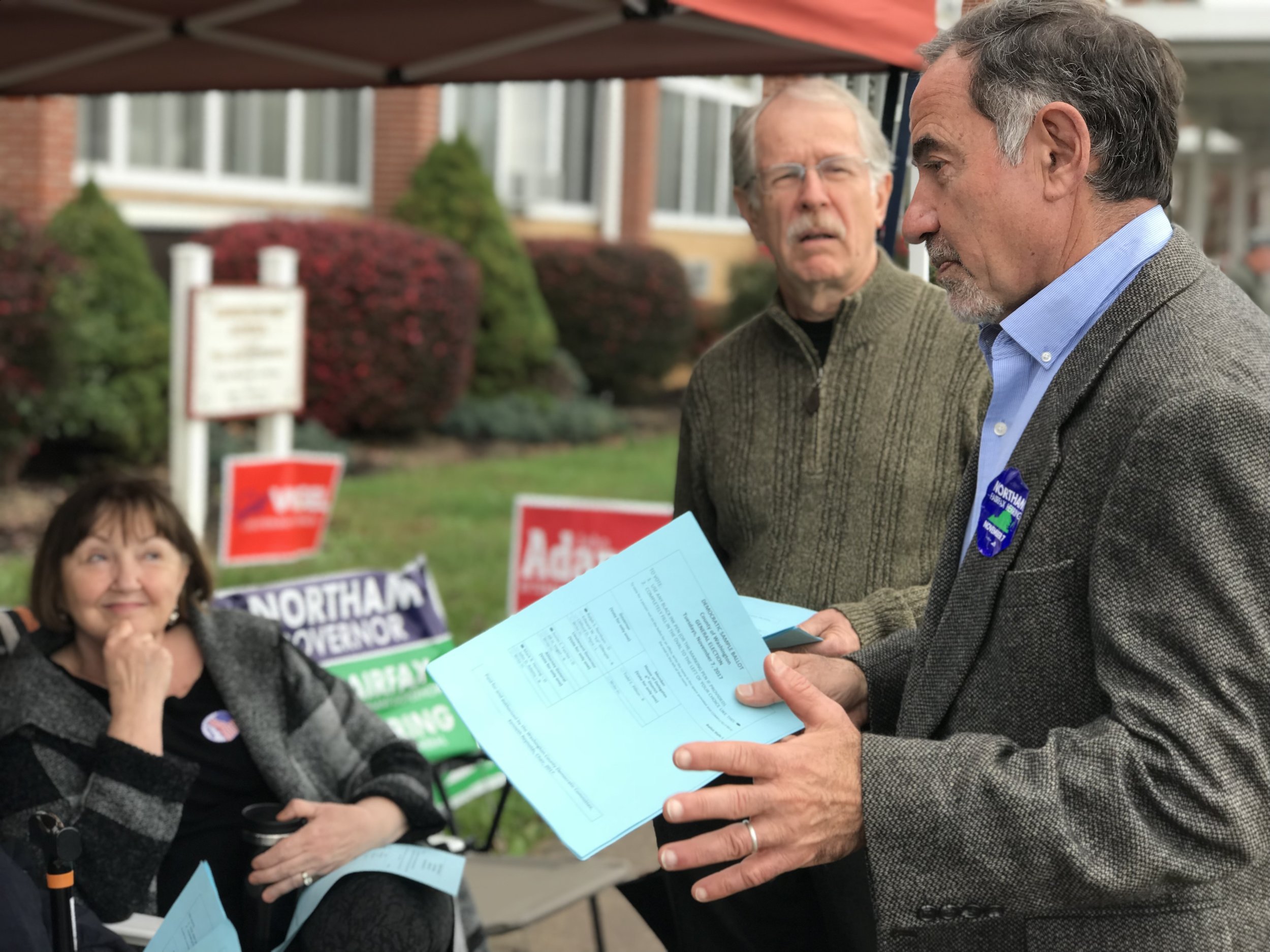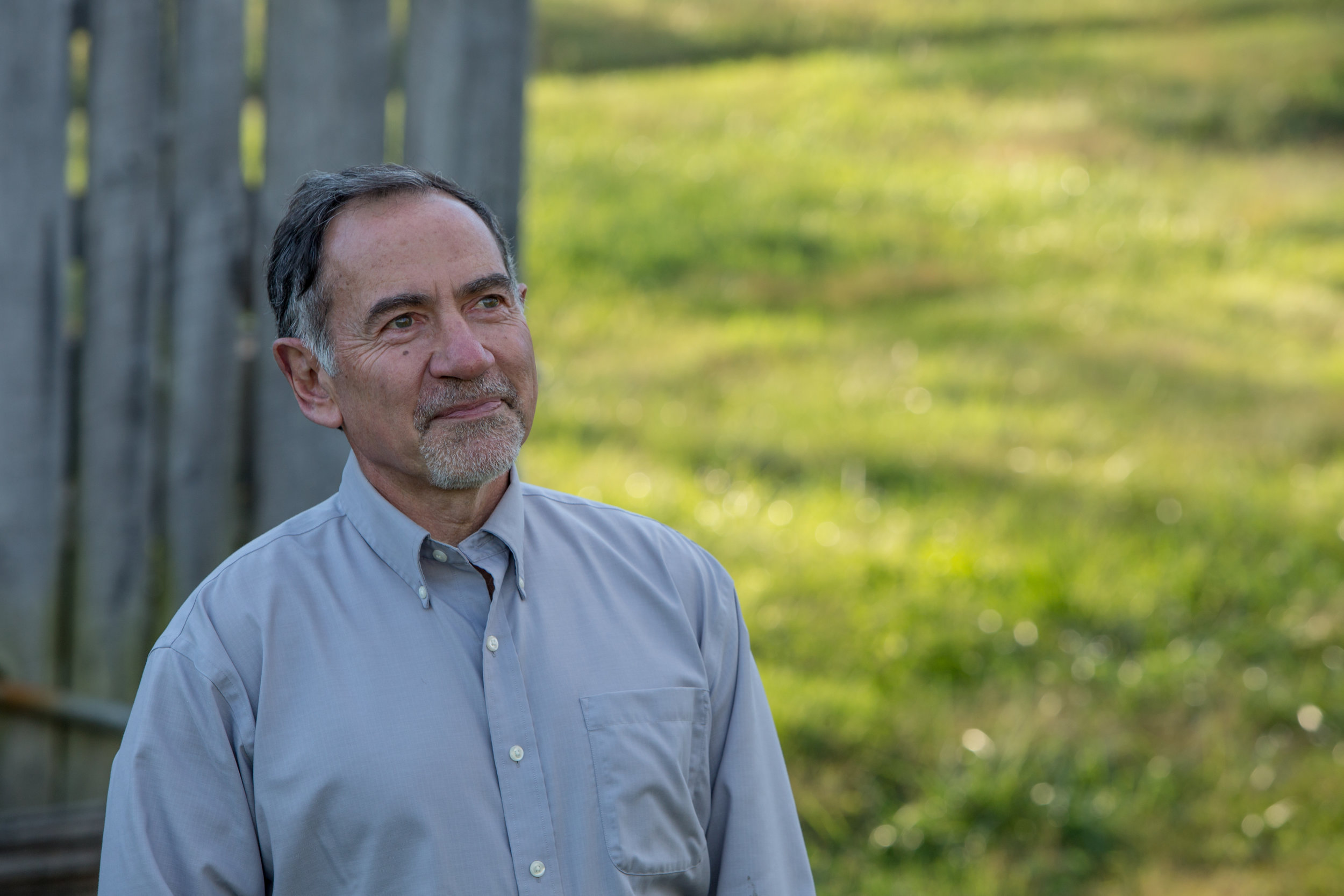
How can we transform the U.S. economy and restore our politics? In "Building a Healthy Economy from the Bottom Up: Harnessing Real-World Experiences for Transformative Change," (University Press of Kentucky, 320pp) Anthony Flaccavento – organic farmer, activist and candidate for U.S. Congress in Virginia's 9th district – presents a multi-level view of how system change could happen, and many stories that suggest such change may already be underway.
It’s an inspiring read and a good diversion from the day-to-day scandals of the Trump administration and its acolytes on Capitol Hill. Even more important, it provides useful answers to the question many of us have in these difficult times: What can I do to make a difference? Flaccavento’s answer is that there is much that everyone can (and must) do as individuals and as members of their communities.
Flaccavento's approach is to look at several types of transition necessary to build a new economy and body politic. These transitions, which range from the household level to national politics, are in various states of maturity although none is far advanced. In describing them, Flaccavento provides examples of people and organizations working at the grassroots, draws lessons from these experiences, suggests public policies to help local enterprises, and offers his own suggestions for how to move the process forward.
At the lowest level, Flaccavento describes how individuals and households can build greater self-reliance. In his county, apple farmers came together to purchase and share a press in order to make cider that they sold at the farmers market and in grocery stores. Other local sharing activities include community gardens, cooperatives, renewable energy generation, and tool libraries. In accumulating such assets and the skills to use them, the community creates wealth that can be invested in other local activities.
The next level examines local economic enterprises that bring together community know-how and energy to create economic opportunities. Casa Nuevo, a cooperative Mexican restaurant in Athens, Ohio, has sourced its food from local farmers for many years. It also works with the Appalachian Community Economic Network (ACEnet) to build networks of local businesses in the region. Since its start, ACEnet has helped establish more than 320 small businesses, nearly three-quarters of which remained in operation as his book went to press – a success ratio far above the average for startups.
Another example is People United for Sustainable Housing (PUSH) in Buffalo, New York. With help from the city and state, PUSH created a “Green Development Zone” in a depressed area of vacant lots and buildings. Entrepreneurs and co-ops created affordable, energy-efficient housing, gardens and green spaces for residents. In just a few years, vacancies in the area decreased from 30 percent to under 10 percent, while a significant number of good jobs emerged and local food production took off. According to one resident, “There’s food growing everywhere you look.”
What can we learn from such examples? Flaccavento observes that “most of the ideas, innovations, energy, and, increasingly, the capital don’t trickle down but instead come first and foremost from the local people, organizations, businesses, structures, and environment that make up a place, that are from the base, or ‘bottom’.” In other words, in almost every community there is enough human, social and financial capital to start building a more dynamic local economy without outside investment.
As the focus moves to more complex activities and relationships, public policy implications become more important. Flaccavento argues that the playing field between small local operators and larger, stronger outside interests must be leveled. Investment incentives and subsidies that overwhelmingly favor large firms and corporate farms should be shifted to local enterprises and small farms. In addition, start-up barriers to small enterprise formation such as licensing, fees and regulations, should be minimized while public sector procurement of goods and services should be local and regional as much as possible to benefit local entrepreneurs and investors.
Other public policies should: 1) reward enterprises that pay well and provide good benefits; 2) make it easier to form cooperatives and B Corporations; 3) provide incentives for the transfer of farmland or family businesses to the next generation; and 4) encourage the conversion of vacant land and unused buildings to community-run enterprises.
From here, the focus moves to the question of how to take such wealth-building to scale. The primary challenge is that corporations have a huge advantage because of their size. They benefit from economies of scale compared with smaller enterprises. Their economic clout also allows them to expand their operations vertically from raw materials acquisition to finished products and retail sales and/or grow horizontally by building additional productive units and acquiring other companies. Such strategies allow corporations to dominate markets and demand more beneficial prices as well as diversify their income streams. Moreover, large enterprises often have the political muscle to demand subsidies and tax incentives from states and localities.
Small, local enterprises have none of these advantages. That is the case, at least, with individual small enterprises. But, as Flaccavento observes, when they band together in networks, they too can integrate vertically and horizontally, collectively boosting their power in the market. In addition, because of the small size of their individual establishments, networks of small enterprises inherently have more flexibility than corporations and can therefore respond more directly to local needs.
Can networks of small, local businesses compete with large enterprises? Some intriguing examples suggest the answer is “sometimes.” Organic Valley, a nationally known brand of dairy products, is tightly linked to a network of farmers through a co-op called the Coulee Region Produce Pool (CROPP), consisting of 1,800 organic family farms with annual sales above $1 billion.
Another example is the Community Power Network that originated in Washington, DC, in 2008, as the Mount Pleasant Cooperative (MPC), installing solar panels in the neighborhood. This success stimulated the creation of similar cooperatives in all of DC’s eight wards, which, together, came to be known as DC Sun. The founders of MPC then launched a national Community Power Network, which expanded to include 130 communities in 39 states, many of which are non-profits building their own networks of businesses, cooperatives, neighborhood associations, and renewable energy advocates.
These networks have been able to realize some of the benefits of size, while retaining their flexibility. They have often been able to take advantage of group purchases of solar panels, developed community “solar gardens” connected with churches and other community building, and worked together on advocacy at the local level for community solar energy development.
This kind of economic development is supported by the Business Alliance for Local Living Economies (BALLE), a network of networks formed with the goal of accelerating small business growth through technical support, learning, and innovation. BALLE studies what works for local enterprise development and disseminates that learning to its networks. It also develops public policy ideas to help small and medium-sized local businesses and to enhance the resilience of communities.
Flaccavento next turns to the political sphere. In his critique of U.S. politics, he is very much in line with progressive thinking that money in politics entrenches the domination of rich elites, corrupting the system and degrading civic discourse. Can there be a “bottom-up politics” that challenges entrenched power while re-creating what Flaccavento calls a “culture of citizenship” and revitalizing civic discourse? He points to two experimental methods that can help create a more egalitarian politics starting at the local level: participatory budgeting and citizens’ juries.
Participatory budgeting is a process whereby a municipality allows a small part of its budget to be controlled by a committee of citizens who get together to deliberate and then decide how to spend the city's funds. A citizens’ jury brings together a relatively small group of citizens to study a single issue intensely with expert assistance over a period of several days or a few weeks. After the study period, they make recommendations to the legislature or city council. The process helps to educate citizens and provide direct, informed input into the political process.
Flaccavento believes these two innovations suggest ways communities and citizens could build a more participatory politics at the local and state level that complements bottom-up economic development. Can they be modified and expanded to create a stronger “push” from the bottom? Flaccavento puts forth some intriguing ideas here. Keeping with the theme of rebuilding citizenship and connections among people, he talks about the potential emergence of “food citizens,” comprised of consumers and producers who recognize common interests in their local food systems, the environment, health, climate change, and related issues.
Specifically, he proposes to test the extent to which food citizens can be instrumental in building a “bottom up economy and politics.” This would involve bringing consumers and farmers together in a process similar to a citizens’ jury to study their local food systems and make recommendations to strengthen them. This process, he hopes, would spur the involvement of local leaders and eventually be replicated at the state level. Presumably, a similar process could be followed in urban areas.
It is almost always a good idea when citizens come together to talk about problems and possible solutions. But as Flaccavento states, for there to be significant impact on the overall economy and policy, these “bottom-up democracy initiatives would need to align with mass movements for change.”
Can farmers and consumers, cooperative enterprise owners, craft beer makers, and local artisans and musicians see themselves as part of a broad progressive movement to create a different kind of polity and economy? Do they even see the broader context and understand themselves to be building a new economy? Certainly people and organizations creating incubators and building networks see the big picture. But many entrepreneurs and cooperative businesses are probably focused almost exclusively on their own enterprises and communities. It seems unlikely that many would start to play more overtly political roles as representatives of specific interests based on their economic activities.
Perhaps they don’t need to, at least initially. It may be that the intersection of advocacy groups like BALLE and the Institute for Local Self Reliance with mass movements is where bottom-up economic ideas can become part of the broader conversation, and politics, around how to create a more just economy. As the bottom builds economic and social networks, these networks may not affect national politics directly. But as they learn to articulate their needs in terms of public policy at the local and state level, they will also be stimulating a gradual evolution of local and state politics. These changes at the state level could serve as supportive structures and ideas for the development of a more progressive national politics.
To make this dynamic as strong as possible, national movements would have to engage with bottom-up activists and vice versa. For national movements, it is not enough to fight for wage increases, health insurance for all, and similar rights. They must also recognize that the existing corporate capitalist economy needs to be transformed and to draw inspiration for how to do that from the people already doing it at the bottom. For activists working at the grassroots of the economy, their challenge is to engage with these national movements to help them understand the importance of bottom-up wealth-building.
3 WAYS TO SHOW YOUR SUPPORT
- Log in to post comments


















